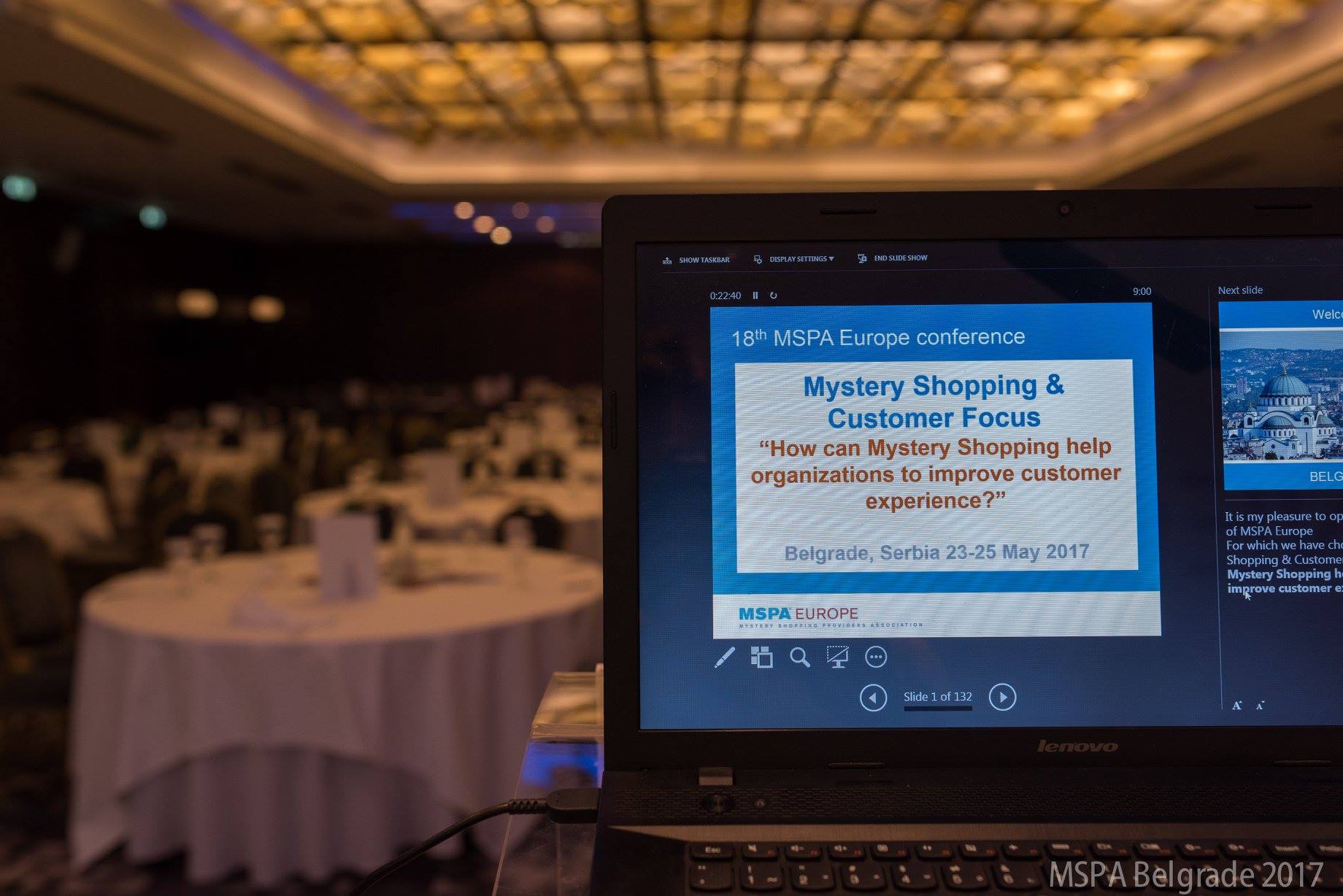MSPA Conference in Belgrade, 2017: Greater interest towards measuring the actual service
Between May 23 and 25, 2017, the European members of MSPA, the Mystery Shopping Providers Association, met in the Serbian capital. During the conference it was announced that the organization changed its title to Mystery Shopping Professionals Association.
We speak again with Juliana Goranova, Senior Researcher in Client X and a regular participant in the association’s events.
Tell us more about the conference in Belgrade.
This is the 18th annual conference of MSPA Europe. There were more than 250 participants coming from over 50 countries. For yet another year, we had the excellent opportunity to meet face-to-face with our partners outside Bulgaria who we usually contact only online or over the phone and to discuss present and future projects and possibilities. Besides business topics, it is always interesting to learn what has been taking place in the different parts of Europe from the personal experience of the colleagues – the worries raising from Orban’s politics in Hungary, the investors’ withdrawal in Turkey after their latest elections, the excitement of the Slovenians with the Slovenia-born First Lady in the White House and so on. All in all, to me the conferences have always been an enriching and valuable experience.
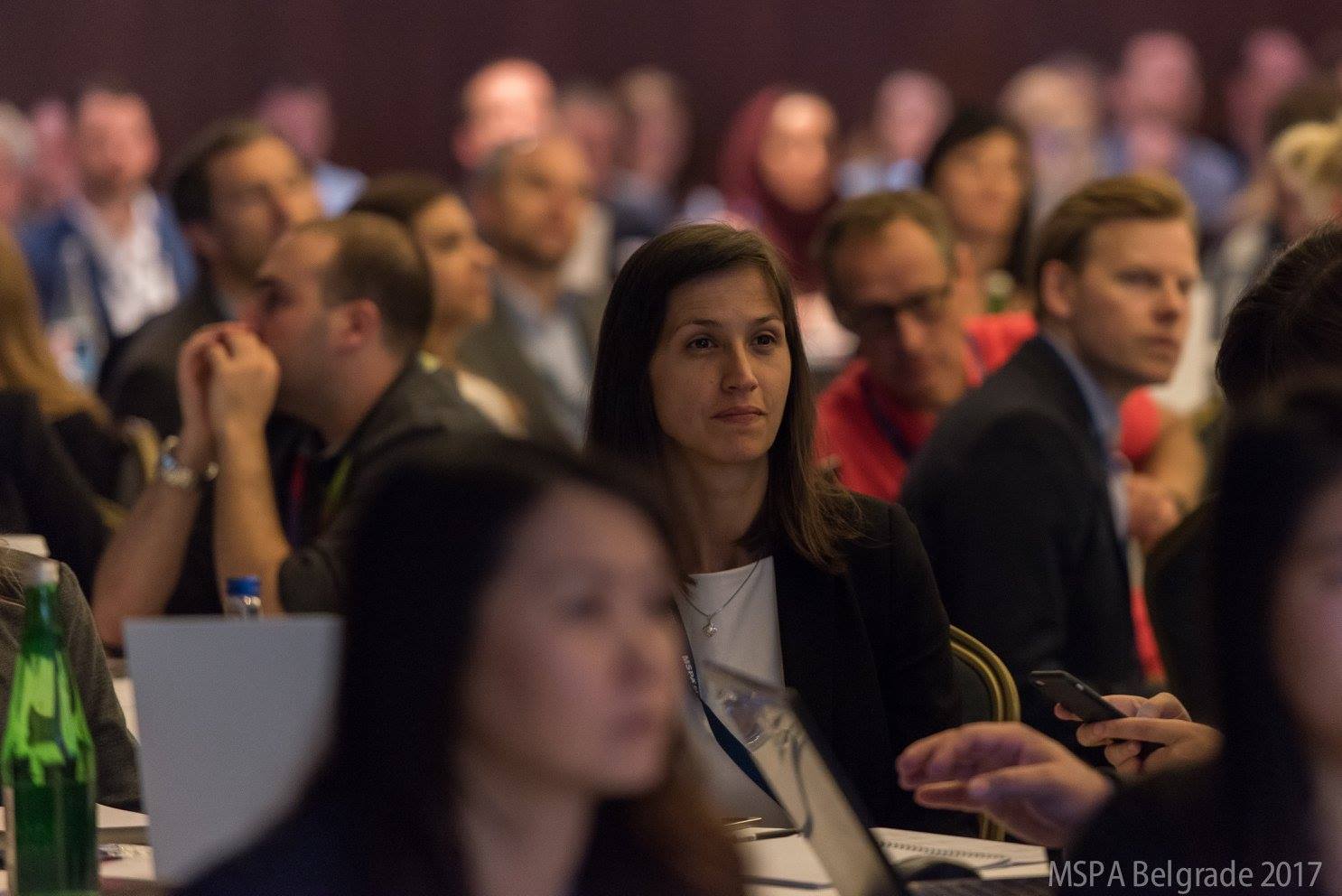
Last year the spotlight was on the benefits of mystery shopping research as an addition, not an opposition to the other types of customer feedback. What was the main focus in 2017?
This year the presentations and discussions were focused on the customer experience and how we can improve it using mystery shopping. We all know that the Internet and the online social networking boom impose new rules on the market – within seconds one unhappy customer is able to share his bad experience with hundreds of other. Companies are aware that overcoming the effects of “bad word-of-mouth” is a much more expensive investment as compared to encouraging a sustainable, excellent customer experience. And, of course, here is where we can help.
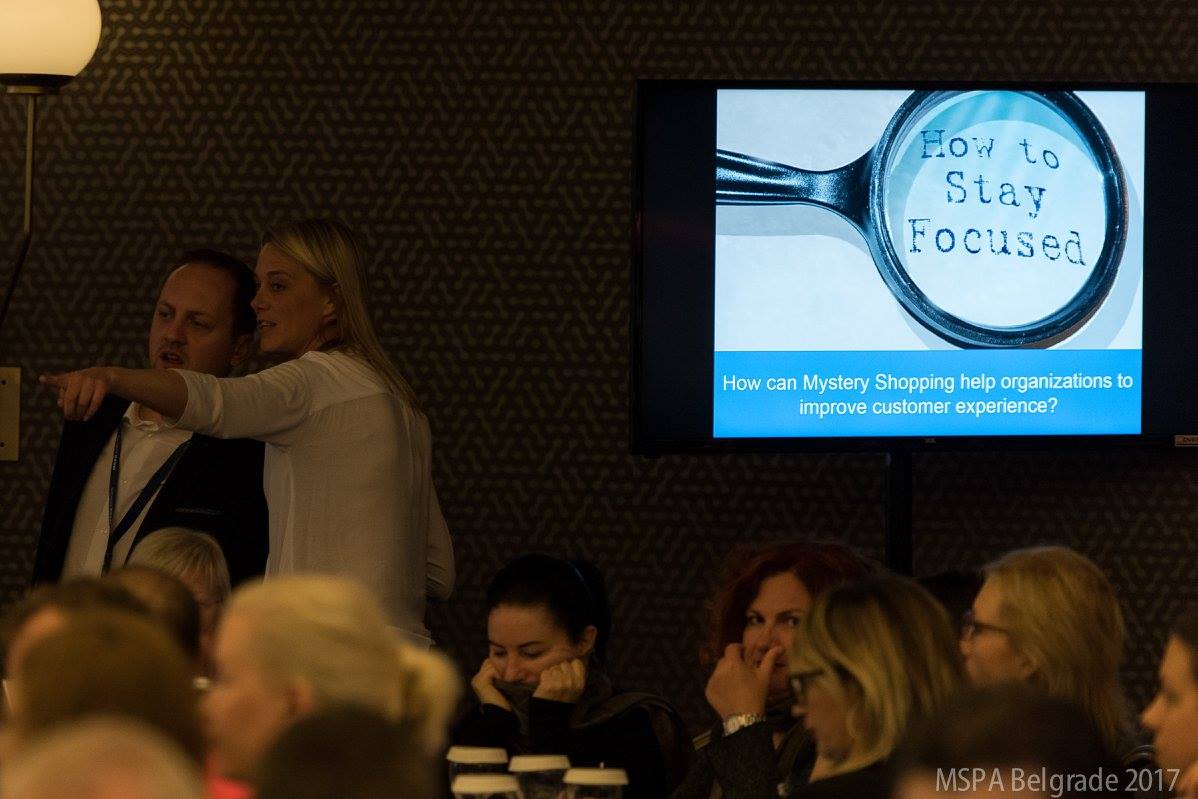
The Elite member program was one of the highlights during the conference and Client X was officially awarded Elite status. What does this mean to Client X and its clients?
The Elite status is a deserved acknowledgment for Client X and all the efforts we have invested during the past 10 years to improve the customer experience in Bulgaria for all of us as regular customers. The status is awarded to companies who contribute towards the promotion of good practices in the mystery shopping industry, who are active members of MSPA, comply with the Code of professional and ethical standards, who have proven their professionalism, while earning the trust of many partners and clients. Client X is the only Bulgarian company that has received the Elite status and we are really happy with the accomplishment. We are thankful for the trust of all our clients and express our gratitude to our mystery shoppers who contributed with their excellent work.
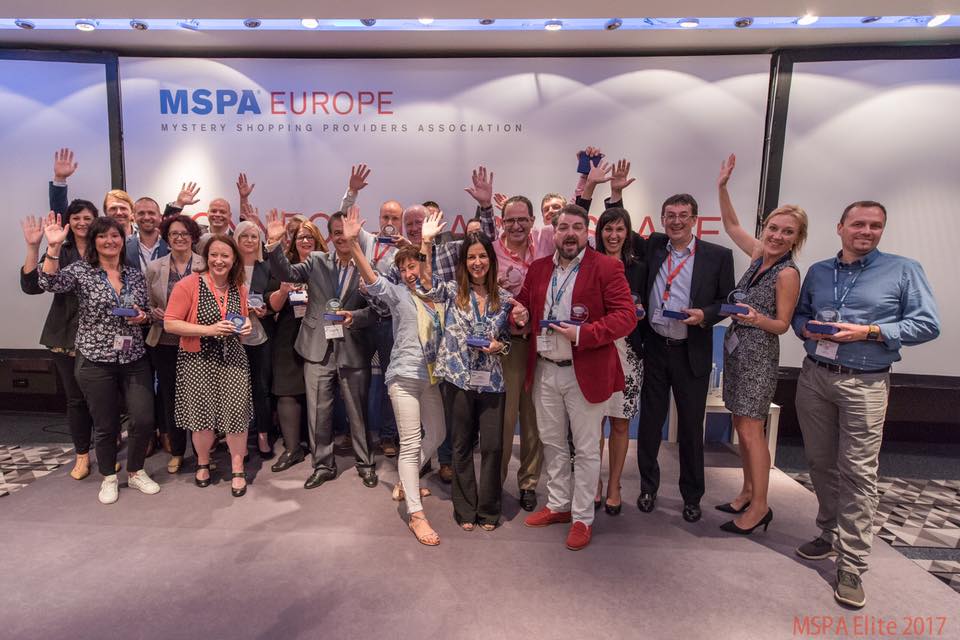
What is new in the area of customer satisfaction research? Are there any new trends in the mystery shopping industry?
We now witness how technology and Internet play an even greater role in our lives. For example, there is a stronger interest in our industry in recruitment through smartphones. Colleagues from Italy presented a mobile app they had developed for their mystery shoppers. The shoppers are able to fill in questionnaires using their smartphone, even while the check is still in progress (if the script and the situation allow). Thus, on one hand, the shoppers spend less time filling in data, and on the other hand, the clients receive the required information and scores from their outlets faster. Another example of benefitting from smartphones is getting customer feedback directly and on the spot. Let me explain a bit more: a customer, say, of a shop or a restaurant chain may choose to register and agree to be sent different surveys. Every time she enters an outlet of this chain, she is immediately recognized through her smartphone and automatically sent a survey to share her experience on the spot.
Andrew Firth from GfK UK talked about the changing face of mystery shopping in the financial services sector. Can you tell us more about their experience?
Andrew gave a really interesting presentation. We are all aware how important to us as customers is receiving a quality product and excellent service in the bank. Often, the bank products bind the customers for many years ahead, e.g. mortgage loans. After the crisis in 2008, the financial institutions reconsidered how they offered and sold credit products, many bank offices were shut, while shifting the spotlight on online services instead.
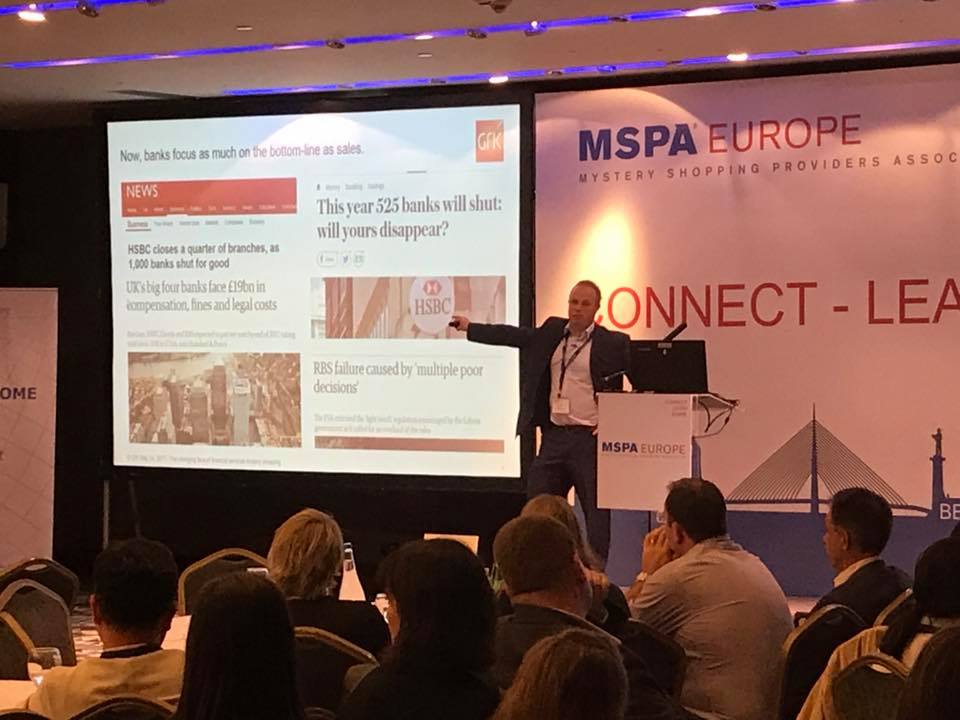
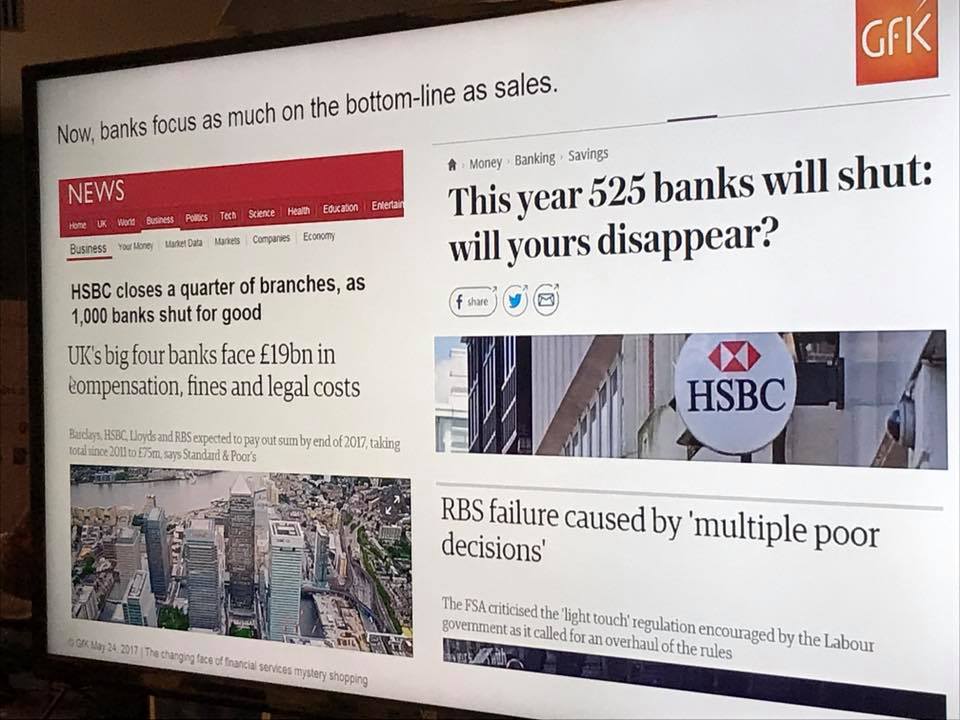
Of course, banks still consider it important to measure the performance of their bank officers when in contact with the customers, but now the focus shifts from numerous mystery shops in numerous offices to a smaller number yet more complex mystery checks. These are inspections conducted by mystery shoppers using their real profiles, while applying for real products and services (e.g. not just inquire about a loan but also hold additional meetings, collect and present real documents, etc.). This is not something new to us in Client X but what impressed me was that the British banks insist on measuring the customer experience not only of standard customer groups but also of the vulnerable (disabled people, minorities, etc.), which we cannot just yet see in Bulgaria taking a focus.
What do you think, has the awareness and expectations of the companies changed towards the service of the mystery shopping providers?
I think that more companies realize the importance of measuring their performance in dynamics using mystery shopping tools. The requirements we face as mystery shopping providers are changing and getting more complicated. Except for the standard mystery shopping checks, more companies are now aware of the importance to observe their performance in complex scripts, using mystery customers matching their own client base with specific profiles. In the strong competitive environment, they realize how valuable this information could be and I think we will be seeing more of this tendency from now on.
What kind of city is Belgrade? Did it surprise you somehow?
Yes, it really did, although I’ve been to Belgrade several times before. I felt as if I was visiting friends, the Balkan hospitality was all around us. I was impressed to see that in the parks there were special benches to change baby diapers; that kids in the park can use a step and climb conveniently to drink tap water themselves, as opposed to what we see in Sofia – parents picking them up.
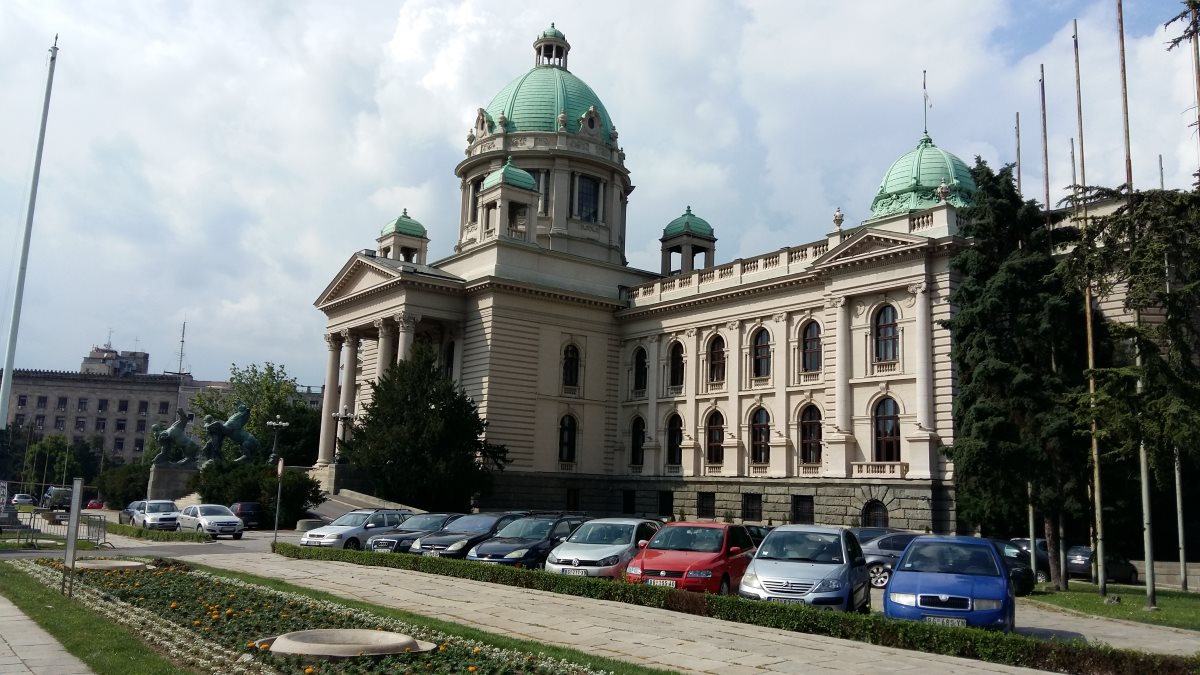
While enjoying the beautiful buildings in the city center, I reached the parliament building where an unexpected view stroke me – a huge poster with photos of children (and their names) framed by the sign "We will never forgive you for killing our children" next to the logo of NATO and several bombers. A recent past memory not only of the parents’ pain, but also a reminder for us to value what we take for granted.
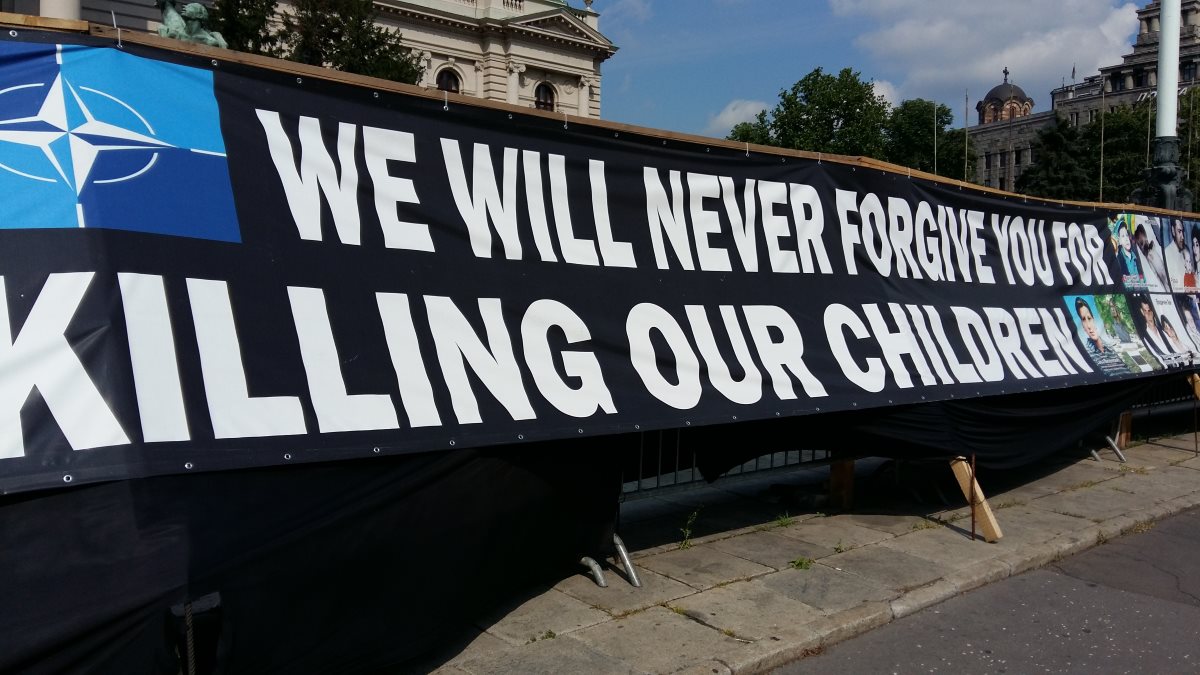
Photos: (c) MSPA and CC BY-ND 4.0 Client X

